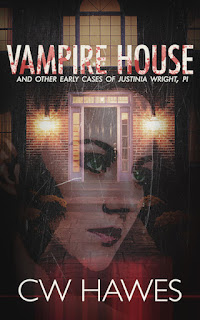It might seem to be an oxymoron to put slow burn and thriller together as a descriptor of a novel.
Yet the traditional murder mystery fits those two terms quite well. For its pacing is very much slow burn and when appropriate thrilling.
Thrillers Then and Now
Back in my youth, some 60 years ago, the definition of a thriller was quite precise: an action–packed read where the protagonist had X amount of time to stop the antagonist from blowing up a building, destroying a city, or even eliminating the planet itself.
Today, in the world of crime fiction, everything is a thriller — whether the story is thrilling or not. Today, the term “thriller” has very little to nothing to do with the content of a novel. “Thriller” is an advertising term that is used because of the belief that readers want exciting and thrilling action and nothing else.
The term “thriller” is a marketing tool that is applied to everything in order to get sales, which means the term has ceased to have any meaning. If everything is a thriller, then nothing is. Besides, I’ve read a number of boring, dull, and unexciting “thrillers”. Which only accentuates the meaninglessness of the term.
To be honest, thrillers aren’t my thing. Even when the Thriller was a well-defined crime fiction sub-genre. I enjoy thrills in my story and thrilling scenes, but I’m not interested in nothing but thrill producing scenes on every page.
This is mostly due to the fact I read for the characters, and not the plot. I want to read about people trying to get out of a dilemma. I’m not interested in stuff blowing up or shootouts occurring simply to raise the adrenaline level.
Enter Justinia Wright and the Traditional Mystery
When I was young, I didn’t read mysteries. Except for Sherlock Holmes and the occasional Thinking Machine story.
I much preferred science fiction, horror, and sea adventures. It wasn’t until I was around 30 that I truly discovered mysteries and fell in love with them. Thanks to a librarian named Marilyn Gray, who was an avid mystery reader. She is the one who introduced me to Nero Wolfe. And I am forever grateful.
For me, it was love at first read. I loved the characters. The stories were intriguing. And the writing style of Rex Stout was superlative. Only Raymond Chandler could give him a run for his money.
When I decided to get serious about writing fiction, it was the classic whodunit I set out to write.
The result was Festival of Death. Justinia “Tina” Wright and her brother, Harry, were inspired in part by Nero Wolfe and Archie Goodwin.
Author Richard Schwindt observed: “…why would someone do that most difficult of pastiches, Nero Wolfe, as perfected by Rex Stout? Why not take that format and create it afresh, as CW Hawes has done…”
To capture the essence of a fictional world, and recreate it into something fresh is a difficult task. The easy route is the pastiche.
I am very pleased that not only Mr. Schwindt, but others have caught on to what I attempted and pronounced it satisfactory. Justinia Wright has become a win for me, the writer, and a win for those readers who like the classic slow burn thriller.
Slow Burn Thriller
The whodunit is by nature a cerebral enterprise. A game of collection and analysis. The plot is simple: A kills B, the police think the killer is C, until the detective shows them it’s A.
What makes the difference is style, as Raymond Chandler noted.
Which might explain all of the kooky and quirky characters inhabiting the pages of mystery fiction.
By nature, mysteries start slow. And build up steam and momentum as you read, until they reach the whizz-bang climax. That is the slow burn thriller in action.
Obviously, some readers will find the formula not to their liking. They don’t want to follow a trail of breadcrumbs. They don’t want to solve a puzzle. They want things exploding on page one, and the hero taking out a platoon of assassins on page two using a pen knife as his only weapon.
That just isn’t how it’s done in the traditional whodunit world. And that’s okay. Because there are enough writers and readers so that every writer has an audience and every reader has a writer he enjoys.
If you want a more cerebral than visceral read; a read that stimulates the mind, yet also the senses; is entertaining; and still delivers plenty of action — then I invite you to enter the world of Justinia Wright. The Justinia Wright Private Investigator Mysteries.
They are doggone good slow burn thrillers, if I do say so myself.
And I’m glad to say there are others who say so with me: “I loved this book. Loved the characters. And, I love how Hawes spins his stories.” Thank you, gentle reader.
Oh, and you needn’t start with Festival of Death. Each book is a standalone mystery. (One of my personal favorites is Book 7: Death Makes a House Call.) Yet there is an overarching character storyline you will find interesting if you read the series in order.
And if you like freebies, join my mailing list and get Vampire House and other early cases of Justinia Wright, PI for free. Sign up at BookFunnel.
Otherwise, pick up the books on Amazon.
Comments are always welcome! And until next time, happy reading!
If you enjoyed this post, please consider buying me a cup of tea. Thanks! PayPal.me/CWHawes
Justinia Wright Private Investigator Mysteries on Amazon!
Magnolia Bluff Crime Chronicles on Amazon!









